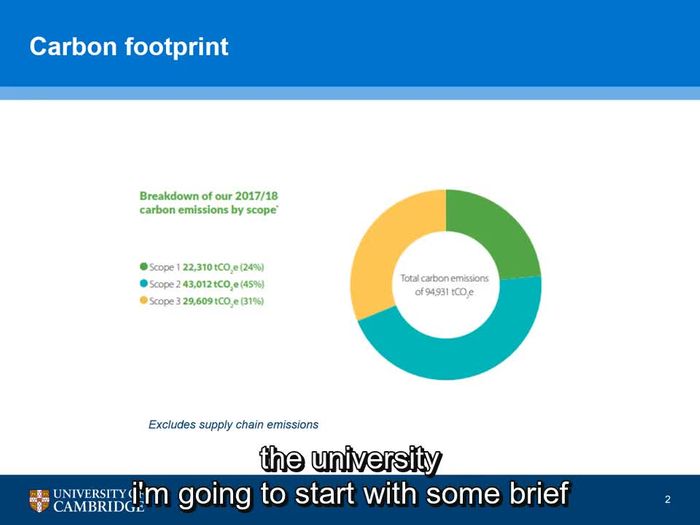Abstract
The University of Cambridge has set a Science Based Target committing itself to reduce its scope 1 and 2 emissions to absolute zero by 2048, with an aspiration to be a decade ahead of its decarbonisation pathway at all times and to reach zero-carbon by 2038.
The programme of works to achieve this ambitious target includes:
looking at options to eliminate gas used for space and water heating;
developing renewables on University land;
sourcing all of the University’s electricity from zero carbon sources;
energy efficiency improvements across the University’s estate.
In addition to outlining the approach being taken by the University of Cambridge, this session will discuss the challenges involved including the setting of boundaries in a complex and highly devolved governance structure and measuring scope 3 emissions. It will also cover the opportunities and challenges that Covid-19 presents for advancing the University’s carbon reduction agenda.
Video




